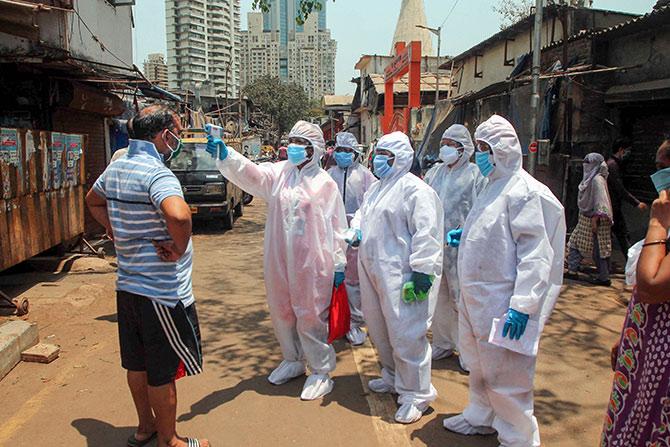'The climate crisis remains the biggest long-term threat facing humanity. Failure to act on climate change could shrink global GDP by one-sixth.'

A fracture of interstate relations could be India’s biggest risk coming out of the pandemic.
This topped a list of critical risks for India over the next two years, according to Geneva-based World Economic Forum’s Executive Opinion Survey (EOS), whose results were released on Tuesday.
Other top risks include a debt crisis in large economies, widespread youth disillusionment, failure of technology governance and digital inequality.
It defines fracture of interstate relations as ‘economic, political and/or technological rivalries between geopolitical powers, resulting in a fracture of bilateral relations and/or growing tensions’.
It refers to relations between countries.
The 17th edition of the report highlighted global risks for the next two years.
They include extreme weather, livelihood crisis, climate-action failure, social cohesion erosion and infectious diseases.
The report looks to engage leaders in thinking about risk in a way that is removed from the quarterly reporting cycle.
It also identifies risks over the medium term (over the next two-five years) and long-term (next 5-10 years).
Climate action failure topped for both time periods globally, with an impact on global gross domestic product (GDP).
“The climate crisis remains the biggest long-term threat facing humanity. Failure to act on climate change could shrink global GDP by one-sixth...
"It is not too late for governments and businesses to act on the risks they face and to drive an innovative, determined and inclusive transition that protects economies and people,” said Peter Giger, the group chief risk officer, Zurich Insurance Group, in a statement with the report.
Climate change has already caused extreme weather events in multiple geographies, the report noted.
It pointed to examples including in the Arctic Circle, where summer temperatures have been 10 degree Celsius higher than in the previous years.
The downward trajectory in greenhouse gas emissions because of Covid-19 has since reversed, said the report.
A transition that doesn’t consider societal implications will worsen inequalities within and between countries, it said.
Companies are increasingly focusing on making organisations more resilient and on burnishing their environmental, social and governance (ESG) credentials, suggested Carolina Klint, the risk management leader, continental Europe, Marsh. Risks now extend beyond earth-bound networks, she pointed out.
"With cyber threats now growing faster than our ability to eradicate them permanently, it is clear that neither resilience nor governance is possible without credible and sophisticated cyber risk management plans.
"Similarly, organisations need to start understanding their space risks, particularly the risk to satellites on which we have become increasingly reliant, given the rise in geopolitical ambitions and tensions,” said her statement accompanying the report.
The report noted that there has been increased digital dependency because of the pandemic.
Malware and ransomware attacks went up by 358 per cent and 435 per cent, respectively, in 2020, according to the report.
Global leaders must come together to solve the crises, said Saadia Zahidi, the managing director, World Economic Forum.
“Health and economic disruptions are compounding social cleavages.
"This is creating tensions at a time when collaboration within societies and among the international community will be fundamental to ensure a more even and rapid global recovery.
"Global leaders must come together and adopt a coordinated multi-stakeholder approach to tackle unrelenting global challenges and build resilience ahead of the next crisis,” she said.
Photograph: PTI Photo












 © 2025
© 2025